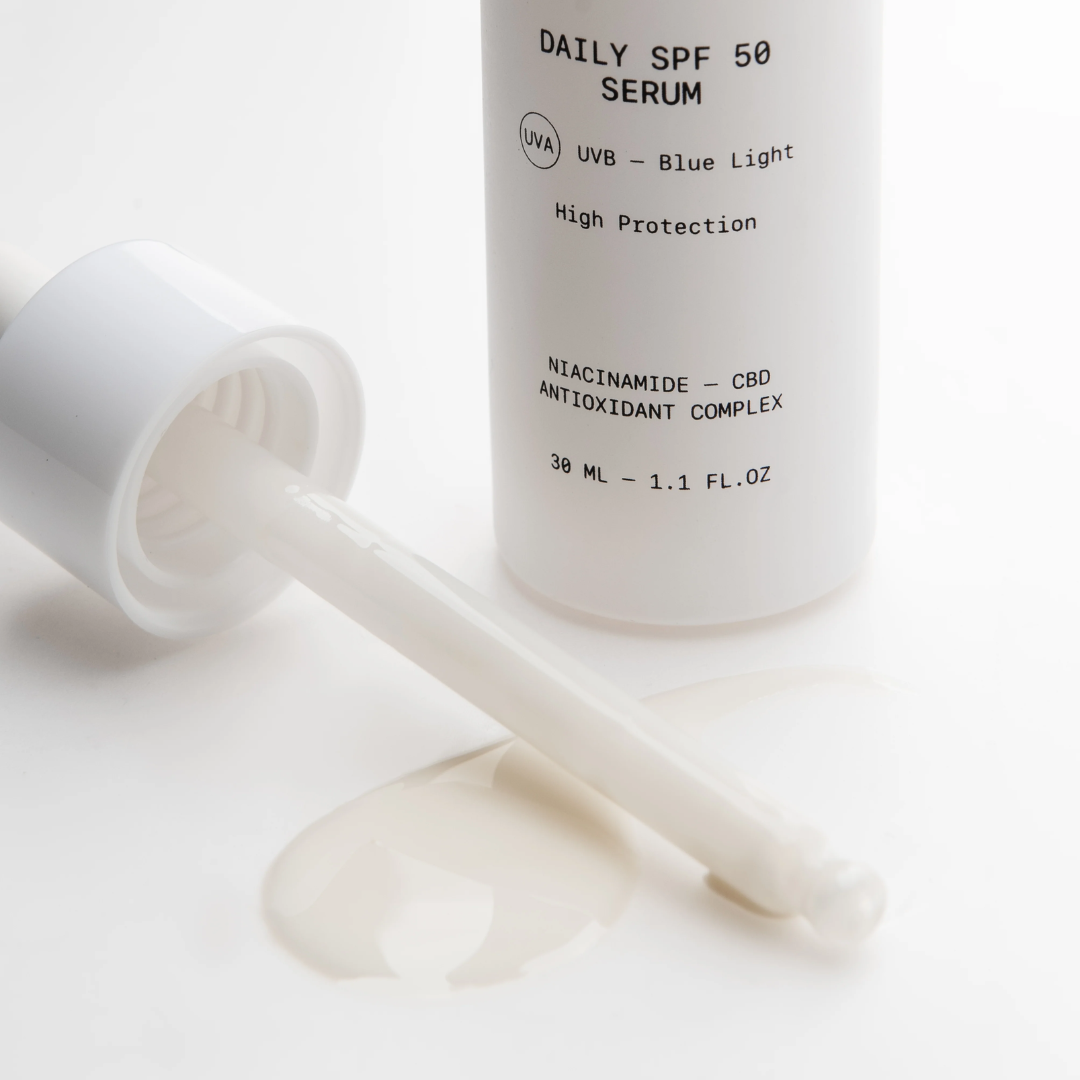The exception of solar products
A bit of context
Synthetic anti-UV filters (also called "chemical" or "organic") are controversial: considered too polluting for the environment (especially for the marine ecosystem) and sometimes dangerous for health (endocrine disruptors).
Among the natural alternatives, UV filters of mineral origin predominate, in particular Titanium Dioxide (TiO2) and Zinc Oxide (ZnO). These mineral filters reflect UV rays, unlike organic filters which absorb them. They come in the form of fine powder, which is mixed into the formula to form a sunscreen.
These powders, like all natural mineral powders, sometimes contain a proportion of nano-sized particles, but the organic and Slow Cosmetics labels ensure that the proportion is limited and below regulatory thresholds (the effect of nanoparticles on humans remains uncertain, but the environmental impact is increasingly criticized.
As the Slow Cosmétique ® label reminds us, from a health and environmental point of view, they are both more reassuring in the current state of scientific knowledge .
So to date, there is no 100% clean sun care product .
The main disadvantages of these mineral UV filters are aesthetic and user comfort:
- from an aesthetic point of view : these mineral filters are white and, the higher the protection, the whiter the filter (SPF30 vs. SPF50). Also, the darker the skin, the more visible it will be.
- from a comfort of use point of view : you often have to massage for a long time to make the treatment penetrate well. This can be restrictive when you have to apply it all over your body (yours and your children's ;) ) and repeat the operation every 2 to 3 hours as recommended.

Our approach: tolerating certain non-harmful synthetic filters
The performance and sensoriality of sunscreens are two crucial elements in the adoption of a sunscreen product.
Indeed, sun protection is an essential step to integrate into your beauty routine, summer and winter. If the application is too tedious or if the treatment is visible and not aesthetic, there is a good chance that this step will be abandoned or that we will move towards a product from the "classic" industry, which is more harmful and more polluting.
This is why, at Mahalo, we have decided to tolerate certain non-harmful synthetic sunscreens in our formulas. Harmful filters such as benzophenone or oxybenzone, banned in Hawaii and the Virgin Islands in particular because of their impact on marine ecosystems, are banned from all our formulas.
We always favor natural ingredients and organic active ingredients but we tolerate, in the context of sunscreens only, certain non-harmful synthetic alternatives when these provide a real benefit.
The products concerned in our range
Here are the products that contain synthetic sunscreens, which make these treatments completely transparent and easy to apply:
- Seventy One PercentDry Sun Oil : 80% natural UV filters
- Yuka rating: 21/100
- Synthetic filters used:
- BUTYL METHOXYDIBENZOYLMETHANE:
- Risk according to Yuka : low
- Usefulness : Filters certain UV rays to protect the skin or hair from the harmful effects of these rays
- ISOAMYL P-METHOXYCINNAMATE:
- Risk according to Yuka : low
- Usefulness : Filters certain UV rays to protect the skin or hair from the harmful effects of these rays
- ETHYLHEXYL TRIAZONE:
- Risk according to Yuka : no risk
- Usefulness : Filters certain UV rays to protect the skin or hair from the harmful effects of these rays
- BIS-ETHYLHEXYLOXYPHENOL METHOXYPHENYL TRIAZINE:
- Feel Free | Urban Feel Good by Seventy One Percent: 85% natural UV filters.
- Yuka rating: Excellent (93/100)
- Synthetic filters used:
- ISOAMYL P-METHOXYCINNAMATE:
- Risk according to Yuka : low
- Usefulness : Filters certain UV rays to protect the skin or hair from the harmful effects of these rays
- BIS-ETHYLHEXYLOXYPHENOL METHOXYPHENYL TRIAZINE:
- Risk according to Yuka : no risk
- Usefulness : Filters certain UV rays to protect the skin or hair from the harmful effects of these rays
- DIETHYLAMINO HYDROXYBENZOYL HEXYL BENZOATE:
- Risk according to Yuka : no risk
- Usefulness : Filters certain UV rays to protect the skin or hair from the harmful effects of these rays
- ETHYLHEXYL TRIAZONE:
- Daily SPF Serum by Quinque: 85% of the ingredients are of natural origin.
- Yuka rating: Excellent (93/100)
- Synthetic filters used:
- BIS-ETHYLHEXYLOXYPHENOL METHOXYPHENYL TRIAZINE:
- Risk according to Yuka : no risk
- Usefulness : Filters certain UV rays to protect the skin or hair from the harmful effects of these rays
- PHENYLBENZIMIDAZOLE SULFONIC ACID:
- Risk according to Yuka : low
- Usefulness : Protects against UVB rays
- DIETHYLAMINO HYDROXYBENZOYL HEXYL BENZOATE:
Find our entire range of sun care products here .
Sources : slow-cosmétique.org, INCIBeauty.com, Yuka, website of the brands mentioned




